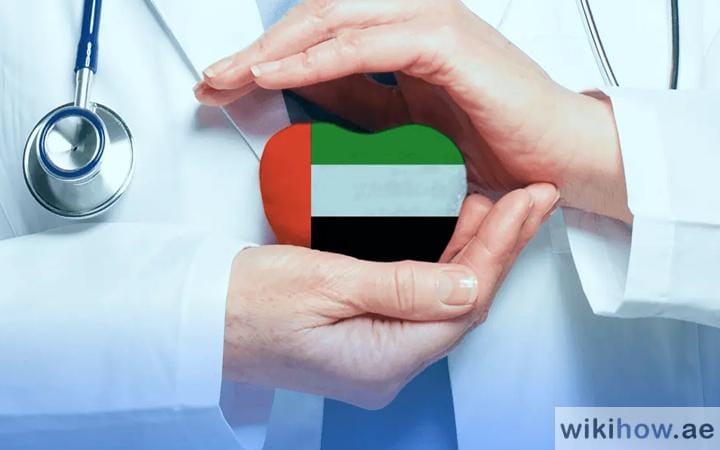Ultimate Guide to Health Insurance in UAE (2026 Edition)

Health insurance in UAE is a critical component of daily life for UAE residents and expats alike. Health care in the UAE is good with modern medical technologies and world-class hospitals – but it’s often costly. Thus, the government mandated that all residents obtain health insurance in order to provide access to a vital service that provides care and treatment. Health insurance provides financial coverage during health emergencies and important access to treatment in a timely manner. If you are living or working in the UAE, getting to know how the health insurance system works is important.
Why Health Insurance Is Mandatory in the UAE
The UAE government made health insurance compulsory to encourage a healthy population and shield individuals from the considerable costs of medical care. The government wants to make sure that everyone whether a citizen, resident or expatriate can access quality healthcare without suffering financial hardship. Health insurance was made compulsory to reduce the burden on public health services, as well as to improve community health and sustainability. This decision aligns with the growing strength and reputation of the Healthcare system in UAE, which aims to provide world-class medical services across both public and private sectors.

Obligations for Expats and Locals
Employers in Dubai and Abu Dhabi are only required to offer their staff a minimum level of health insurance. Additionally, it is the sponsors’ (head of household) or clients’ (domestic) responsibility to ensure that the dependents (head, wife, kids, and housemaid) have a compliant insurance plan. It’s important to remember that the rule is a fundamental prerequisite for granting and extending visas, and it applies to all workers in the private sector.
Penalties for Non-Compliance
It’s critical to comprehend the repercussions of noncompliance with their health insurance. Renewing residency permits can be challenging for expatriates without insurance, and they may face significant fines, delays, or rejections in the visa application process. Under UAE labor laws, employers who fail to insure their employees risk fines and legal repercussions.
Types of Health Insurance Plans Available in UAE
To meet the diverse needs of individuals, families and businesses, the UAE offers a range of health insurance plans. Residents and foreign nationals can make better decisions depending on their personal or professional circumstances by being aware of the different kinds of plans that are available.
Individual vs. Family Plans
One person is covered by this insurance. Individual plans are designed for people without dependents or who are single. Depending on lifestyle, medical history, and age, a variety of options are available that cover basic health services. Prescription drugs, diagnostic tests, emergency room visits, and outpatient visits are examples of health services.
Family plans combine coverage under a single policy for multiple covered household members, such as a spouse, children, or other dependents. Family plans can be ideal for residents with dependents and can be substantially less expensive than buying separate individual plans. Maternity coverage, pediatric care, wellness checks, and many other features make family health benefits more extensive than those of individual plans.
Corporate and Group Policies
In the United Arab Emirates, a number of medium-sized to large employers offer group medical insurance plans to their staff as part of their benefits package. In addition to being a more cost-effective alternative to individual medical plans, group medical insurance policies may cover wellness, dental, or optical care, as well as the family members of employees, provided that both the insurers and company policy permit it. Wider coverage, minimal or no waiting period, and relatively simple enrollment are all desirable features of group policies for both employers and employees.
Government-Sponsored Schemes
The UAE Government provides subsidized health insurance programs mainly for UAE Nationals, and in some instances, low income residents and some public sector employees. For example:
- Daman’s Thiqa Program: Emirati citizens in Abu Dhabi are entitled to coverage under the Thiqa program, which provides full medical coverage across a wide range of facilities.
- Dubai Health Authority (DHA): offers a basic plan to low income workers in Dubai which provides for minimum essential benefits including emergency services, GP consultations, and basic maternity care.
All of these schemes are important for ensuring that all components of the population receive essential services, regardless of income level.

Key Benefits of Health Insurance in UAE
Health insurance in the UAE has many important benefits that provide financial security and access to quality healthcare. The range of comprehensive benefits offered by the insurance product comprises doctor consultations, hospitalization, diagnostic tests, surgery and prescribed medicines. Individuals will be protected against unanticipated medical bills. One of the most beneficial aspects of health insurance is the ability to have cashless hospitalization, where the insurer will settle fees directly with the network hospital on behalf of the insured and do not need to pay upfront. Insured persons can also gain access to high-quality hospitals with advanced technology and trained medical professionals. Many health plans also provide emergency services, maternity care and preventive health check-ups for persons and families to improve the long-term well-being of the resident and expatriate population in the UAE. In particular, many insured individuals benefit from access to some of the Best hospitals in Dubai, which are known for their international standards, specialized care, and state-of-the-art facilities.
How to Choose the Best Health Insurance in UAE
Finding the best health insurance in the United Arab Emirates necessitates carefully weighing several policy features to make sure it fits your financial situation as well as your medical needs. You should start by thinking about the policy’s coverage limitations. Coverage limits specify the annual amount that the insurer will pay and ensure that they have access to a wide range of clinics and hospitals. Additionally, you should look into how they handle claims for pre-existing conditions, as these may have exclusions or waiting periods. You can compare various insurance companies online to find the best deal, or you can speak with a Ministry of Health-licensed insurance broker for assistance with coverage choices. As part of your research, it’s worth understanding exactly how to get health insurance in UAE so you can make an informed decision. Finally, it may also be helpful to read customer reviews about claim processing, quality of service and overall customer satisfaction.
Health Insurance for Tourists and Short-Term Visitors
Visitors to the UAE, especially those staying for short periods, are strongly encouraged to purchase health insurance to guard against surprise medical costs while they are in the country. While it is not a requirement for every visitor, many long-term or multiple-entry visa arrangements do require visitors to show proof of valid health or travel insurance. Some short-term medical insurance will cover emergency medical treatments, hospitalization, or repatriation for serious illness or injury. Visitors can purchase health insurance with their travel insurance from very well respected international insurance providers, or they can purchase a temporary health plan with a local health insurance provider when they arrive. Having health and travel insurance provides visitors with peace of mind, as they will have access to the UAE’s high level of healthcare without being solely responsible for the costs.

Conclusion
Health insurance plans in the UAE are, in fact, more than a statutory requirement—it is a critical safety net for residents, expatriates and even visitors that protects from the financial burden of a medical emergency. As residents of the UAE have access to excellent healthcare services, peace of mind and timely treatment can be ensured with appropriate health insurance. Whether military resident, employee of a company, family leader or entrepreneur, spending even a little time to find an appropriate insurance policy based on personal healthcare needs and budget requirements can make a giant difference in one’s quality of life. The healthcare industry in the UAE has changed and will continue to change, which makes ensuring you are in the know about coverage and well insured one of the best investments you can make to avoid a potential healthcare disaster to your health and wellbeing.
To see updates about health policies and residency legislation or life in the UAE, visit WikiHow UAE as your single comprehensive source of recent information about the Emirates!
FAQs
1. Is health insurance mandatory for everyone in the UAE?
Yes, health insurance is legally required for all residents, including expatriates. Employers and sponsors are responsible for providing coverage.
2. Can tourists get health insurance in the UAE?
Yes, tourists can purchase temporary health insurance or travel insurance that covers emergency medical care during their stay.
3. What is covered under a basic health insurance plan?
Basic plans generally include general practitioner visits, emergency care, hospitalization, diagnostic tests and prescribed medications.





